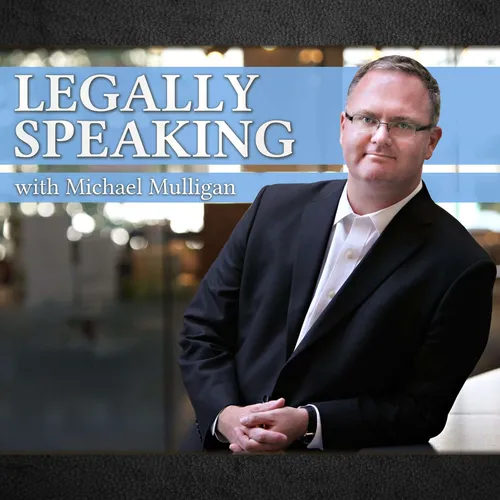Protection against cruel punishment not for corporations, no annulment after wedding day separation and ICBC stores 518 acid damages cars
- Author
- Michael Mulligan
- Published
- Fri 06 Nov 2020
- Episode Link
- None
This week on Legally Speaking with Michael Mulligan:
For some legal purposes, corporations are treated like people: they can enter into contracts, own property, engage in litigation, and be charged with committing offences.
Some constitutional protections also apply to corporations: the right to be free from “unreasonable search and seizure” and the right to a trial within a reasonable period of time for example.
Other constitutional protections don’t apply to corporations including the right to “life, liberty and security of the person” or the right not to be forced to testify that is protected by section 11 (c) of the Charter.
In a recent case from Quebec, where a small corporation was subjected to a fine of more than $30,000 for performing construction work without a licence, the Supreme Court of Canada has now decided that corporations can’t benefit from the constitutional protection against “any cruel and unusual treatment or punishment.”
You can’t be cruel to a corporation.
The next case discussed involved an application for an annulment of a marriage.
Following the marriage ceremony, the bride and groom attended a park, along with family members, for the purpose of photographs. A huge argument ensued, and the bride decided she didn’t want to be married.
Both parties applied for the annulment and pointed out that the marriage hadn’t been consummated following the marriage ceremony.
In refusing the application, the judge pointed out that not consummating a marriage is an insufficient basis for an annulment. There needs to be evidence that the parties were incapable of consummating the marriage, not simply that they had not done so.
Also discussed is an ongoing case that represents the largest loss that ICBC has ever suffered when hundreds of cars were damaged by acid that leaked onto a highway near Trail BC.
ICBC is suing everyone possible in an effort to recover the money they paid out for the damaged vehicles including the company that made the acid, the company that transported it, and the company that purchased it. Notably, ICBC is even suing the Province of British Columbia alleging the Ministry of Transportation or the Ministry of the Environment was partially to blame.
The issue that was just decided by a judge involved the ongoing storage of the vehicles involved. ICBC has already incurred $1.6 million in storage costs keeping the vehicles at a private storage facility. As they are paying $54,734 per month to continue storing the vehicles there, ICBC wanted permission to dispose of the vehicles prior to the trial.
The judge refused ICBC’s application and ordered the vehicles to be kept until March 31, 2021, so as to permit time for the defendants to inspect the vehicles.
According to the judge, ICBC decided to “write off” any vehicle found to have “any visible signs of exposure” to sulfuric acid.
The defendants are taking issue with whether all of the vehicles should have been written off on this basis.
If, as has been proposed, a no-fault car insurance system is adopted in British Columbia, ICBC would not be able to sue anyone to recover money from anyone in a case like this, even if it could show that they were careless.
Follow this link for a transcript of the show and links to the cases discussed.
